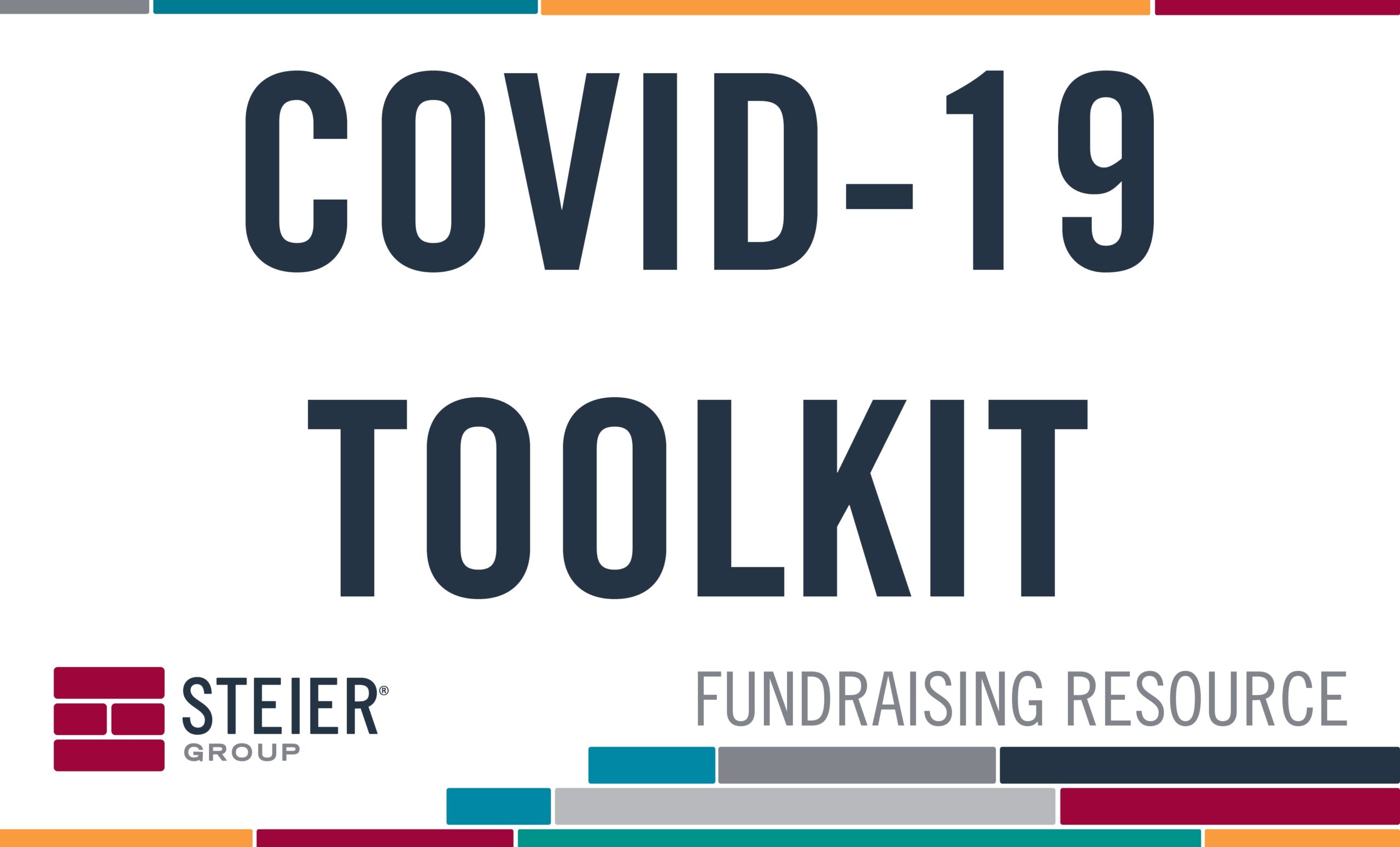These are unprecedented times. While there is understandably a lot of anxiety and uncertainty about what a nonprofit organization should do as the economy struggles and much of society shuts down, certain truths are unchanged. Your organization remains committed to achieving its mission, your needs are real, and your mission relies upon timely and effective fundraising.
The Steier Group is no stranger to advancing our clients’ mission in times of crisis. We’ve faced the uncertainties following the tragedy of 9/11, the economic instability of the great recession, many regional natural disasters (hurricanes, flooding, earthquakes, etc.) and, for our Catholic clients, the heartbreak and mistrust in the wake of the clergy sexual abuse scandals. The lessons we learned and the experience we gained during and after these landscape-altering events enables us to provide you the solid counsel to remain engaged with your donors, speak with them personally, learn about their concerns, LISTEN and continue to ask them to be supportive.
Donors should be empowered to make their own decisions. But since your needs remain real, you cannot stop asking. Listen first, acknowledge that the landscape is different, but assure them that what drew them to your organization originally remains strong and steadfast.
At the same time, it is important to be realistic and acknowledge that the impact of coronavirus is beyond what anyone imagined just a few short weeks ago.
It is not our role (or yours) to speak about the duration of the coronavirus epidemic. But we do know that giving is tied to confidence. When donors have confidence in institutions, leaders, visions and results, they are inclined to be financially supportive when asked.
Here are a few important tips as everyone makes their way through these trying times:
Remember, others won’t stop asking. In times of crisis, if you aren’t continuing to cultivate and engage your supporters, others will. Demonstrate your leadership and confidence in your mission in the midst of the storm and you will see great results. “Shutting down” in a crisis shouldn’t be an option.
Change your goals. Since everybody is struggling, you must focus on what is truly essential. Resources will be stretched thin – even as donors’ hearts remain as committed as ever – so reshape your vision for your fundraising. Scale back in the short term, if necessary, to focus on those goals that are truly most important to your organization.
Adjust the timeline. If you have important meetings scheduled in March, April or May, changes are required. Postponing gatherings will likely be necessary over the next few months. Don’t cancel anything. Just delay. Because your needs aren’t going anywhere and may actually be amplified because of what is happening.
Change your methods of communication. ‘Virtual’ fundraising events have gained some traction in recent years as Millennials (and others) prefer to stay at home and bid on auction items from the comfort of their own couch. While no one has perfected this model quite yet, you can make the shift for the safety of your donor community.
Use digital/social media more than ever. Keep your organization “front of mind” during these times through Facebook and Instagram posts, updates on your website, podcasts, email blasts, short video snippets, etc. Since other activities will slow down considerably, communications should surge.
Connect with your most important supporters. Who are your top 20 or 50 or 100 supporters? When was the last time you connected with them? In challenging times, it is critical to stay in touch with those individuals and families who consistently give the most to your organization. Establish a plan to reach out to this important constituency to discuss the current climate. Ask for their advice on how you can effectively engage with others, as you are engaging with them. Seek their permission to discuss their support in 2020. Most donors will likely respond with kindness and provide insights that can help you determine the probability of their financial commitment decreasing, increasing or staying the same in 2020.
Be creative about how you ask. Due to the volatility of the market, there may be opportunities for you to ask for shorter-term commitments today (because you have needs today) and then re-approach them later in 2020 after the market recovers.
Conduct a care drive. Take the time to communicate to your donors that you care about their well-being and health. Invite constituents to share via social media how your organization’s community has shown care for each other and, in so doing, has advanced your mission.
Stay the course. Be bold. Stay steadfast. Be confident. You believe in your organization and so do your donors. This will pass and when it does, the actions you take today can have a dramatic impact about how donors feel about your organization when this is all behind us.
For more information about stewardship, fundraising and development during the coronavirus crisis, visit our COVID-19 toolkit.





